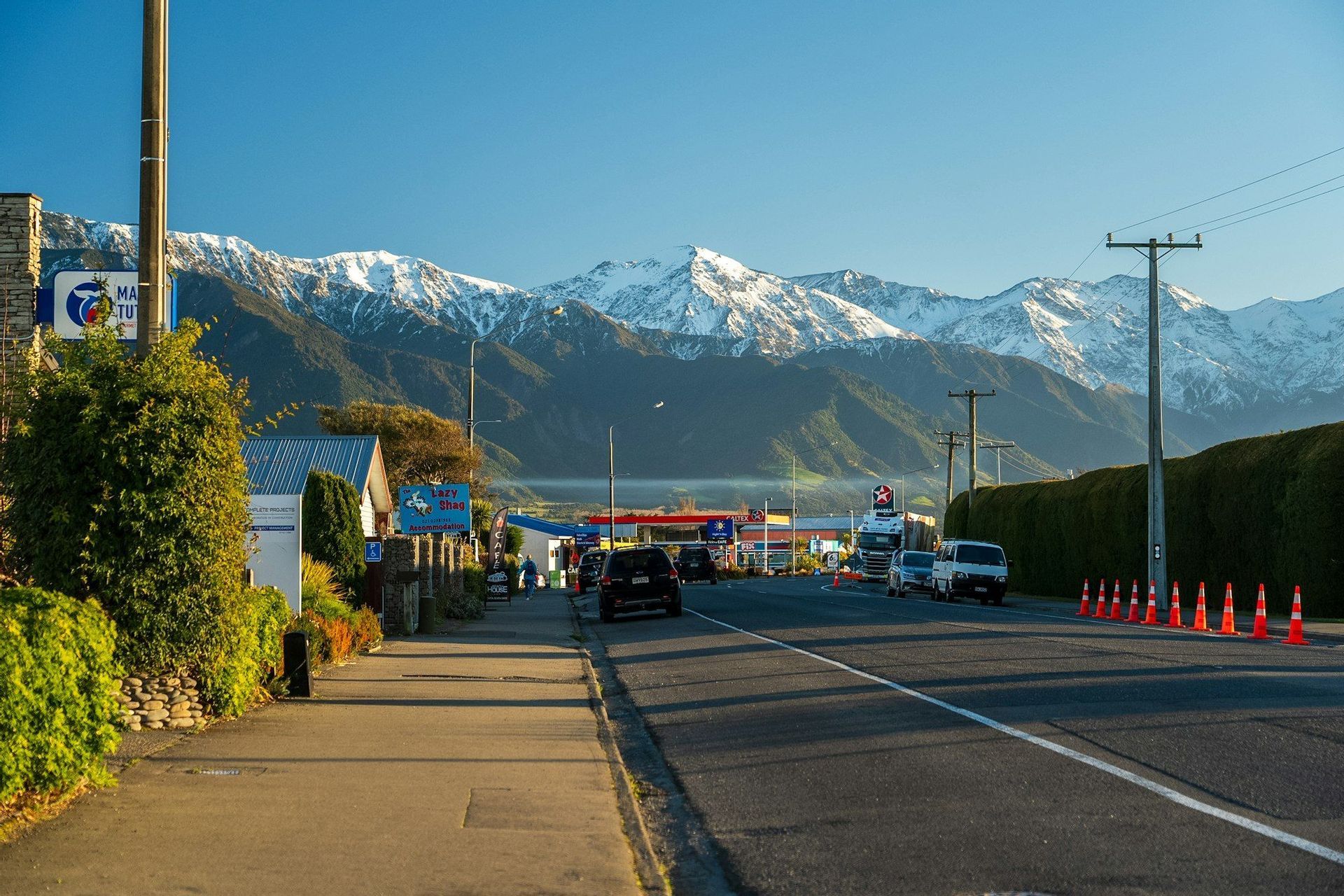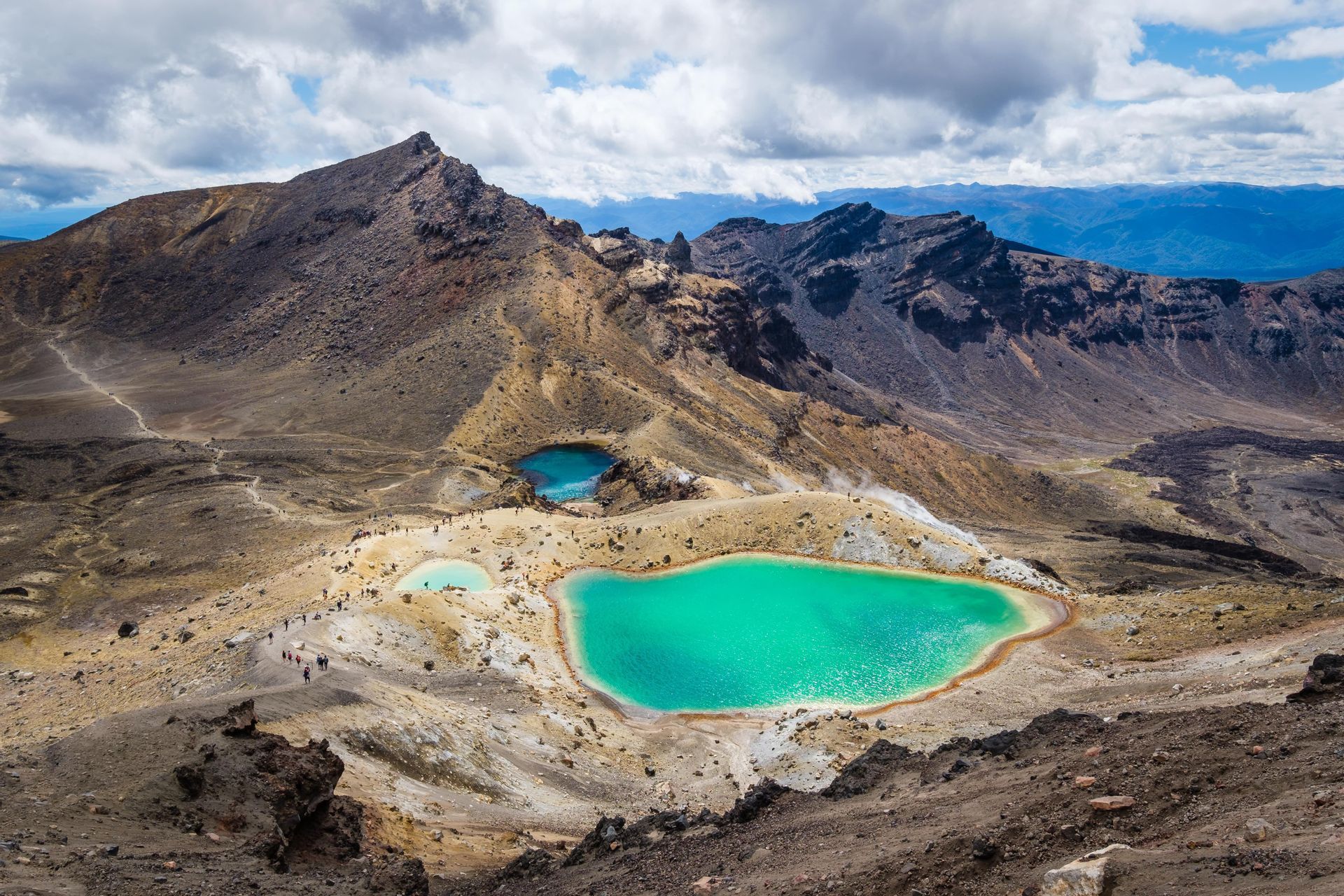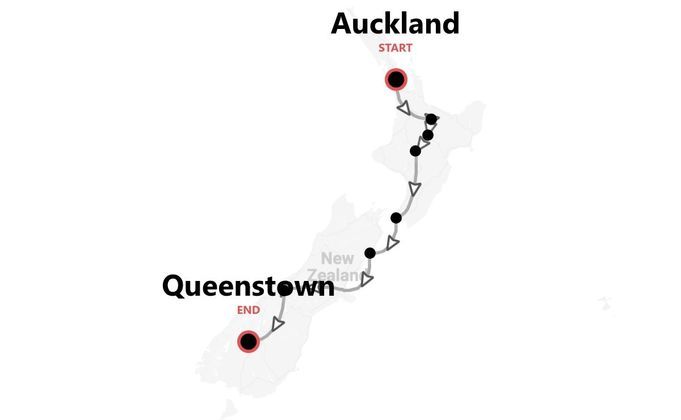
Group trips to New Zealand
Our organized trips to New Zealand
A land of such extraordinary beauty that it feels plucked from a dream, New Zealand offers a journey into the planet's most pristine wonders, a realm where ancient Māori culture thrives amidst dramatic landscapes and vibrant modernity. From the majestic fiords of Milford Sound to the geothermal marvels and rich heritage of Rotorua, and the cosmopolitan vibrancy of Auckland, this island nation beckons to explorers and dreamers, those yearning for both thrilling adventure and serene contemplation.
FAQs about New Zealand
If you are a UK citizen, to find out the entry requirements for New Zealand, you can check this informational page from our partner Sherpa. If you need a visa, you can apply for it through Sherpa. If you are not a UK citizen, you can still use Sherpa by changing the nationality in the 'Passport' section.
Before traveling, always remember to check the government website of your country of origin for updates on the entry requirements for New Zealand – you wouldn’t want to stay home due to a bureaucratic detail!
- UK residents: review the FCDO Travel Advice.
- US residents: consult the US Department of State Travel Advice.
- Other residents: refer to your government or local consulate's travel advice.
New Zealand operates on New Zealand Standard Time (NZST), which is UTC+12. When it's 12pm in the UK, it will be 11pm in New Zealand. For the USA, if it's 12pm Eastern Time, it will be 4am the next day in New Zealand.
Note that New Zealand observes daylight saving time, shifting to New Zealand Daylight Time (NZDT), which is UTC+13, typically from the last Sunday in September to the first Sunday in April.
New Zealand uses the New Zealand Dollar (NZD) as its currency. The daily exchange rate is approximately:
- 0.50 GBP
- 0.60 USD
- 0.55 EUR
to 1 NZD, but this can fluctuate, so it's a good idea to check before you travel. You can exchange currency at airports, banks, or currency exchange offices throughout the country.
In New Zealand, you can pay with credit and debit cards, which are widely accepted. Visa and Mastercard are the most commonly used. Mobile payment options like Apple Pay and Google Pay are also popular. Cash is accepted, but not as common for everyday transactions. It's a good idea to check with your bank about any transaction fees for foreign cards. ATMs are available if you need to withdraw cash.
Tipping in New Zealand is not a common practice like it is in the USA, but it's appreciated for exceptional service. In restaurants, bars, and cafes, leaving a small tip if you feel the service was outstanding is always a nice gesture. In hotels, you can tip porters a few dollars for helping with your luggage. Tipping taxi drivers is not expected, but rounding up the fare is appreciated. Remember, tipping is entirely at your discretion and is not obligatory.
In New Zealand, you can find good internet coverage in most urban areas, but rural spots might have limited access. Wi-Fi is widely available in cafes, hotels, and airports, but speeds can vary. Since New Zealand is not in Europe or the Schengen area, it's a good idea to buy a local SIM card or an e-SIM data plan for better connectivity. Providers like Spark, Vodafone, and 2degrees offer various plans to suit your needs. You'll easily find their SIM cards at the airport or in convenience stores.
In New Zealand, they primarily speak English, but you might also hear Māori and New Zealand Sign Language being used. Here are some useful colloquial expressions you might come across:
- Cheers: Thank you
- Kia ora: Hello (in Māori)
- Sweet as: Great or no problem
- Chur: Thanks or awesome
These expressions can add a local touch to your conversations!
In New Zealand, they use Type I plugs, which have two flat pins in a V-shape and a grounding pin. The electrical voltage is 230 volts, and the frequency is 50 Hz. Since these plugs are different from those used in many European countries, the UK, or the USA, we suggest you bring a universal adapter to use your devices.
In New Zealand, Christianity is the main religion, but the country is quite diverse with many other religions practiced, including Hinduism, Buddhism, and Islam. A significant portion of the population also identifies as non-religious. There are no specific dressing requirements related to religion, but it's always a good idea to dress modestly when visiting religious sites. Important Christian holidays like Christmas and Easter are widely celebrated.
Packing for New Zealand can depend on the season and activities you plan to do, but here's a general guide to help you pack your backpack:
1. Clothing:
- Lightweight shirts and t-shirts
- A warm sweater or fleece
- Waterproof jacket
- Comfortable pants and shorts
- Swimwear
2. Shoes:
- Comfortable walking shoes
- Hiking boots
- Flip-flops or sandals
3. Accessories and Technology:
- Sunglasses
- Hat for sun protection
- Portable charger
- Travel adapter (Type I plug)
- Camera
4. Toiletries and Medication:
- Sunscreen
- Insect repellent
- Basic first aid kit
- Common travel medication like painkillers, antihistamines, motion sickness tablets
New Zealand's weather can be unpredictable, so layering is key. Consider the season when packing, as summer can be warm while winters are cooler.
New Zealand's weather can vary quite a bit depending on where you are, so it's a good idea to plan accordingly. Here's a general breakdown:
- North Island: Generally warmer, especially in the summer (December to February). Winters (June to August) are mild with occasional rain.
- South Island: Known for cooler temperatures, especially in the inland and southern areas. Summers are warm but can be unpredictable, while winters can be cold with snow in mountainous regions.
The best time to visit is from November to April when the weather is warmer and more stable. Remember, New Zealand is in the Southern Hemisphere, so the seasons are opposite to those in the Northern Hemisphere.

